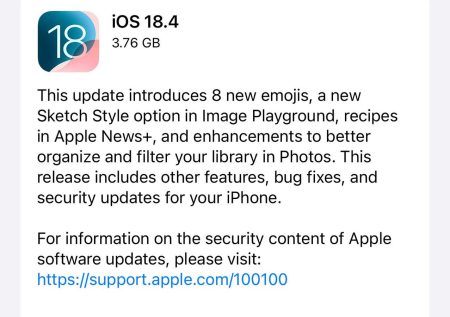Ori Eldarov is the founder of OffDeal, an AI-native investment bank for selling and buying small businesses.
Imagine dedicating decades to building a successful business, only to receive half its worth when it comes time to sell. With an estimated $10 trillion in value of small businesses expected to change hands over the coming decade, this could be the reality for many small-business owners.
Over 80% of all small businesses with less than $10 million EBITDA are sold outside of a formal auction process when sold in private equity deals. This often results in significantly lower sale prices than what could be achieved in a truly competitive environment. It’s like selling your house to the first person who knocks on the door, rather than hosting a packed open house.
Unlike large corporations, where potential buyers are relatively few and well-known, the small-business landscape is vast and fragmented. In the U.S. alone, there are roughly two million businesses with revenues between $500,000 and $100 million—each one a potential buyer or seller at any given time.
No M&A advisor, let alone a single business owner, could know even a fraction of these companies. As a result, small businesses traditionally rely on one-off deals or enlist a business broker who lists them on public marketplaces—attracting interest from only a tiny slice of potential buyers.
Without broad exposure, business owners often struggle to achieve the valuations they deserve.
How AI Can Bridge The Gap For Small Businesses
AI is poised to change this. Recent breakthroughs in AI allow M&A advisors to analyze vast amounts of data—spanning millions of companies—to identify potential buyers based on factors such as product offerings, market focus and historical acquisition activity. By leveraging large language models (LLMs) and advanced algorithms, advisors can build targeted buyer lists that would have been impossible to assemble manually.
Instead of settling for a handful of leads, owners can now gain visibility into a far broader pool of prospective acquirers with relevant experience and strategic fit. What took weeks or months of manual research can be completed in days, with greater accuracy and precision.
AI doesn’t just help your M&A advisor with the initial buyer search—it can enhance every stage of the transaction. What traditionally took advisors weeks—creating marketing materials, fielding due diligence questions from buyers, validating operational data—can now be done more efficiently and with greater precision.
For the business owner, this efficiency pays off in three ways.
First, larger buyer pools mean more competition and more offers—that is, the business owner has a higher chance of receiving more money for their life’s work. Second, the deal can move along faster, helping to close sooner and reduce the uncertainty that comes with a prolonged sale process. Third, by freeing advisors from tedious, time-consuming legwork, AI allows them to spend more time where it matters most: understanding the unique business needs, engaging thoughtfully with prospective buyers and negotiating the best possible terms.
In other words, AI amplifies what advisors can achieve for the business owner. They can review more buyers, vet them more thoroughly and have more meaningful conversations—adding a depth of human insight that no algorithm can replicate. Rather than sifting through data, they can focus on strategy, relationships and value creation.
Practical Guidance For SMB Owners: Do’s And Don’ts
Business owners looking to benefit from an AI-powered business exit can’t simply rely on ChatGPT—they need to engage with the right M&A advisor who knows how to leverage this powerful technology effectively.
As the founder and CEO of an AI-native investment bank, OffDeal, I’ve watched this market evolve and have seen some of the ways that companies struggle when trying to understand how M&A advisors incorporate AI. Here is a list of a few do’s and don’ts to watch out for:
DO:
• Vet Advisors Carefully: If an M&A advisor claims to use AI, ask how they source data and identify buyers. Request specifics on their methodology, the types of companies their tools uncover and any measures they take to ensure data quality and comprehensiveness.
• Provide High-Quality Data: AI is only as strong as the information it’s fed. Make sure your financials, operational metrics, customer data and online presence are accurate and up to date. The clearer the picture of your business, the more precisely AI can match you with the right buyers.
• Keep An Expert In The Loop: While AI can rapidly expand buyer lists and streamline the search process, human judgment remains critical. Look for advisors who use technology to enhance—not replace—their experience, ensuring you receive a thoughtful interpretation of AI insights, tailored outreach strategies and strong negotiation support.
DON’T:
• Accept Vague AI Claims At Face Value: “We use AI” is not a strategy. Press for details. How does it speed up the identification of potential buyers? How does it improve your chances of getting fair value? If an advisor can’t explain, consider looking elsewhere.
• Rely Solely On Self-Serve Tools: Selling a business is one of the most significant financial events of your life. Purely automated marketplaces or “plug-and-play” AI solutions may sound convenient, but without expert guidance, you risk missing nuances that can significantly impact value and deal structure.
Closing Thoughts: A New Era For Small Business M&A
This trend is already taking off around the globe, and M&A firms are starting to demonstrate how human expertise and AI capabilities can combine to reshape dealmaking. This timing coincides with a growing interest from financial buyers in the small-business segment, creating an unprecedented opportunity to transform the market.
The $10 trillion transfer of small-business ownership over the next decade represents a remarkable wealth creation opportunity. With AI now enabling greater efficiency, expanded buyer pools and more informed negotiations, companies should begin the work to understand how this technology can impact their business now.
Forbes Technology Council is an invitation-only community for world-class CIOs, CTOs and technology executives. Do I qualify?
Read the full article here








